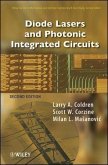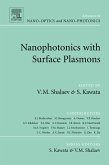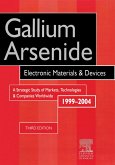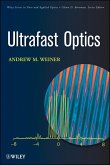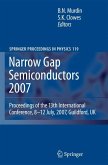The geographical coverage of the report includes North America, Japan and Europe, which together will account for over 90% of the production and consumption of diode laser materials and devices over the next five years.
However, many other countries have activities in this field including South-East Asia (Taiwan, South Korea, Singapore, Malaysia etc), China, India, Australia and Eastern Europe (Russia, Poland, Hungary, the Czech Republic) amongst others. Activities in these countries are commented on in the text where relevant, but are not quantified in the market data.
Chapter 1 is an introduction to the market study. Chapter 2 contains an executive summary. Chapter 3 overviews materials markets. The size, quality, and particularly the price, of substrates and wafers are key factors in determining the ability of companies to produce competitive laser products. Chapter 3 also examines trends in materials technologies for laser diodes, the impact of the device markets on wafer demand, and the main suppliers. This chapter introduces the semiconductor materials that are presently or will likely become important to the fabrication of diode laser devices. The principal distinguishing properties of these materials are explained with reference to their application. Chapter 4 chapter examines the basic application sectors for laser diode devices as well as the basic commercial opportunities, changes and forces acting within each sector. The chapter also examines the market for the basic types of device as well as the promising newer types. For each type of device, market data and forecasts are provided and future prospects described.
The application data are presented for the following industrial groups: . Automotive . Computers . Consumer . Industrial . Military and Aerospace . Telecommunications . Others A full 5-year forecast and analysis is provided by application and region. Chapter 5 is a technology overview. In this chapter a background and overview of developments in the principal technological R&D and production processes for devices is provided. The main focus is on the most important enabling technology for the production of the present and future generations of laser diodes and related devices.
This process is crystal growth and involves the following sequence: . Bulk growth of single crystals . Epitaxial growth of semiconductor single crystal layers . Ion implantation . Device fabrication, ie gate and contact formation, etc . Packaging & test Chapter 6 profiles substrate suppliers, epiwafers suppliers and merchant and captive producers of GaAs devices. Chapter 7 lists universities and selected industrial labs involved in the areas of diode laser research. Chapter 8 is a directory of suppliers. Chapter 9 provides acronyms and exchange rates. For a PDF version of the report please call Tina Enright on +44 (0) 1865 843008 for price details.
Dieser Download kann aus rechtlichen Gründen nur mit Rechnungsadresse in A, B, BG, CY, CZ, D, DK, EW, E, FIN, F, GR, HR, H, IRL, I, LT, L, LR, M, NL, PL, P, R, S, SLO, SK ausgeliefert werden.




